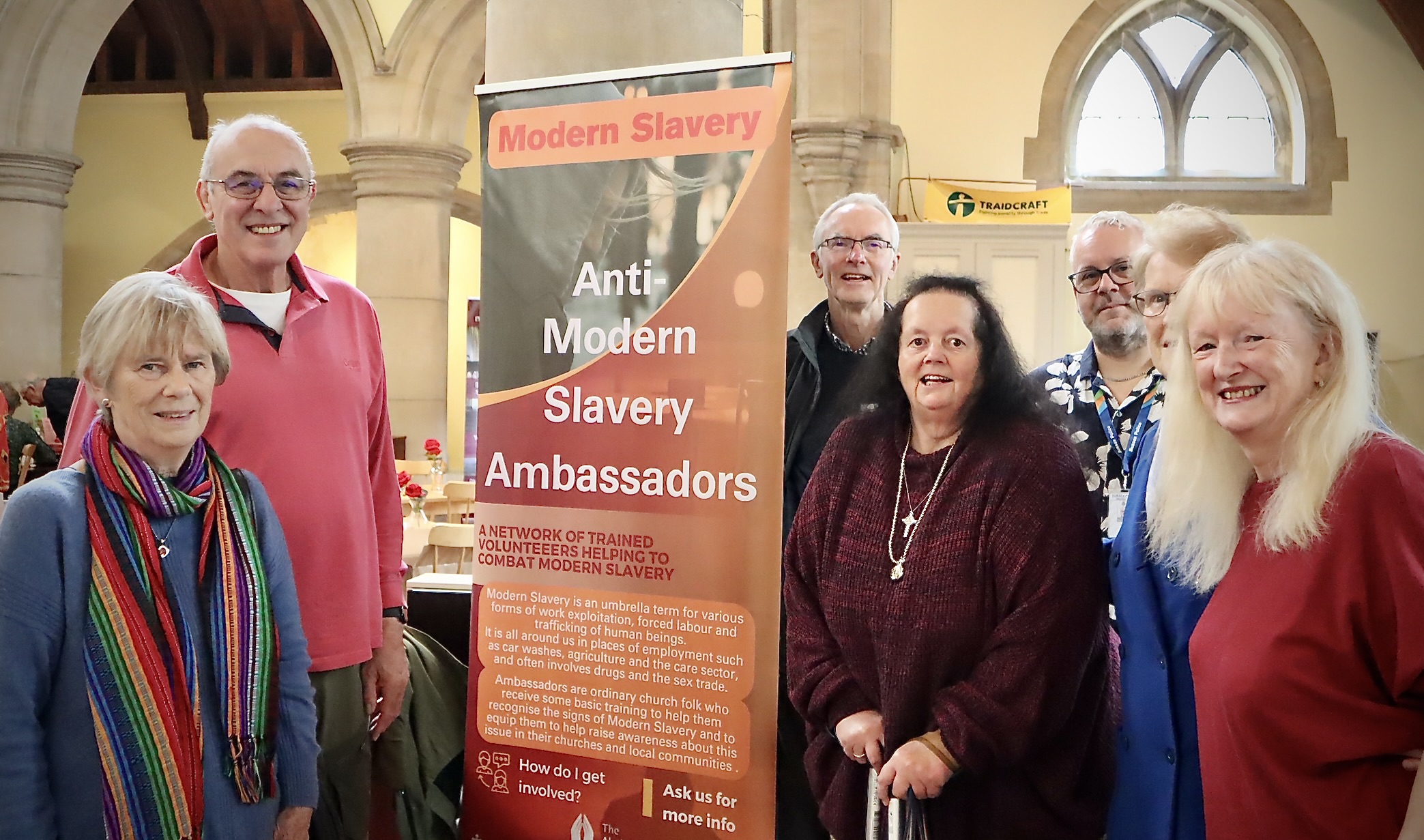
Diocesan Anti-Modern Slavery Ambassadors joined representatives from The Clewer Initiative,Sussex Police, and the Mothers’ Union at St John the Evangelist, Preston, Brighton (CofE) on Saturday. The event – which took place on Anti-Slavery Day – included a range of speakers and provided an important opportunity to pray for victims and survivors, hear from experts combatting modern slavery locally and nationally, and learn more about “spotting the signs” and the various reporting mechanisms.
Tim Read, Exploitation Manager for Sussex Police, regularly attends diocesan Anti-Slavery Ambassador meetings. Highlighting the hidden nature of modern slavery and the factors that can make people of all ages vulnerable to exploitation, he said:
“There are people living amongst us that we may not see who are living in slavery, with children most at risk. They may be hungry and cold and are easy to manipulate; once a debt has been incurred, even if it is for a 69p burger, it must be met.
“Nail bars, farming, and fast-food delivery are also common sectors for modern slavery in Sussex. [People may think they are going to undertake a legitimate job] only to have their documents removed from them; they think they will be working in a café or a care home and are instead forced into sex work or cannabis production.”
Lois Bosatta was appointed as Director of The Clewer Initiative earlier this year. The charity is committed to fighting modern slavery and offers resources and training to people across the UK, publishing a monthly newsletter and providing lesson plans, toolkits, prayers, and a Safe Car Wash reporting app. Reflecting on the impact and reach of church communities, Lois said:
“The Church is a strong asset in the community in both prayer and prevention. Debt, abuse, isolation, and food poverty make people susceptible to slavery; we need to take a prevention stance to stop trafficking through education, awareness-raising, and working with young people [particularly on the issue of County Lines] … then treat harm to prevent re-trafficking. Organised crime is very well networked, and we need to be the same - churches are key to this.”
The diocesan Anti-Slavery Ambassador project was established shortly after the Covid-19 pandemic and includes Anglican, Catholic, and Quaker volunteer Ambassadors. Speaking on Saturday, Ann Meehan from St Erconwald’s, Walton-on-Thames, said:
“Five years ago, I knew nothing about modern slavery; I attended a webinar during the pandemic and joined the Anti-Slavery Ambassador scheme shortly afterwards - I am now a facilitator.
“Our group aims to educate people in church communities through raising awareness. Modern slavery is not easy to spot, we don’t act ourselves but we do observe those around us, and respond to things that don’t seem right by contacting the right people, whether that is the police on 101 or 999, the Modern Slavery Helpline, or Crimestoppers. Together we can be ‘eyes and ears’, with many hands making light work.”
Speaking shortly after the event, a representative from St John the Evangelist said:
“It was a joy to welcome members and friends from the Dioceses of Chichester and Arundel & Brighton – and across denominations.We pray for all victims of modern slavery; may we play our part in bringing to an end all such practices.”
Many thanks to the team from St John the Evangelist, Brighton, the Mothers’ Union for their welcome and hospitality and to Rev Sue Foster, Anti-Slavery Ambassador, for organising the programme and service. Photo L to R: Ambassadors Mary Barrett, John Manfield, Mark Potter, Sr Roz Frampton, Sr Helen Ryan, Tim Read (Sussex Police) and Ann Meehan.